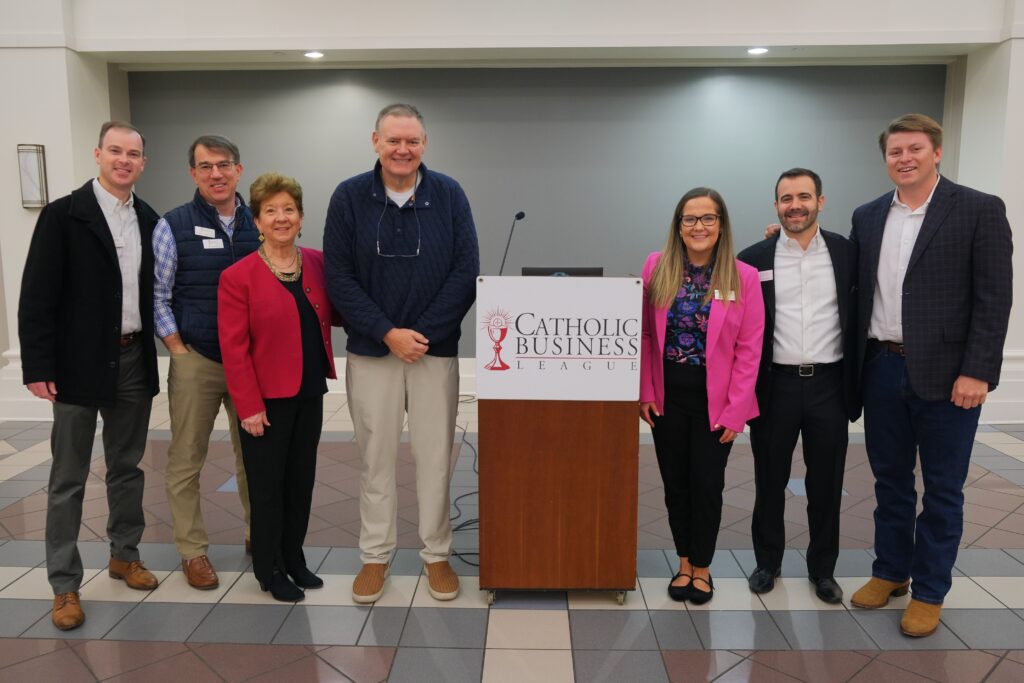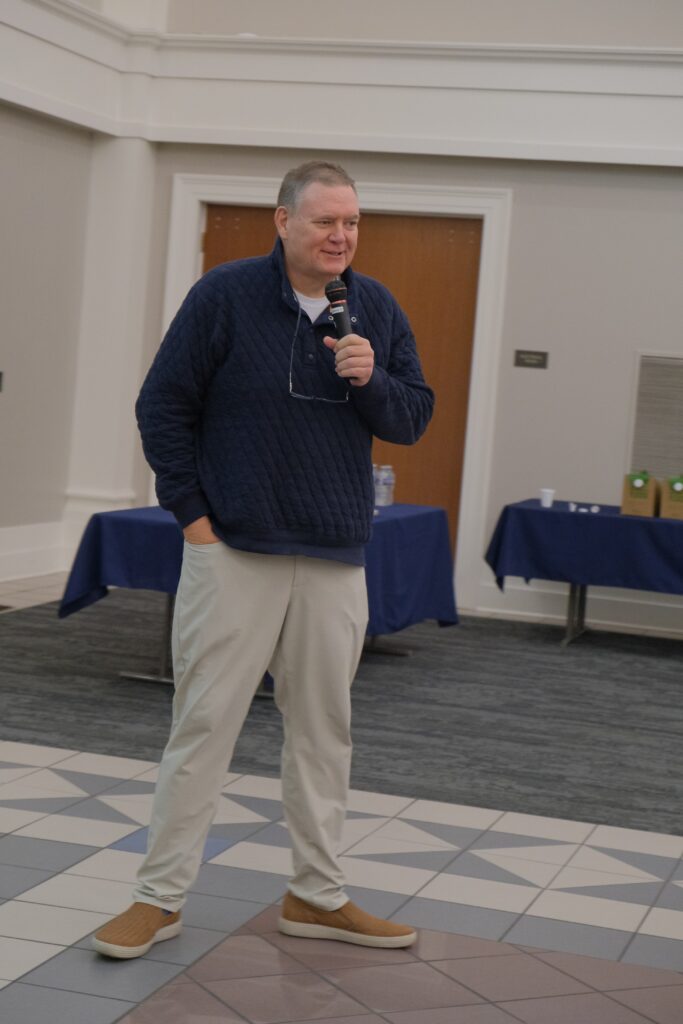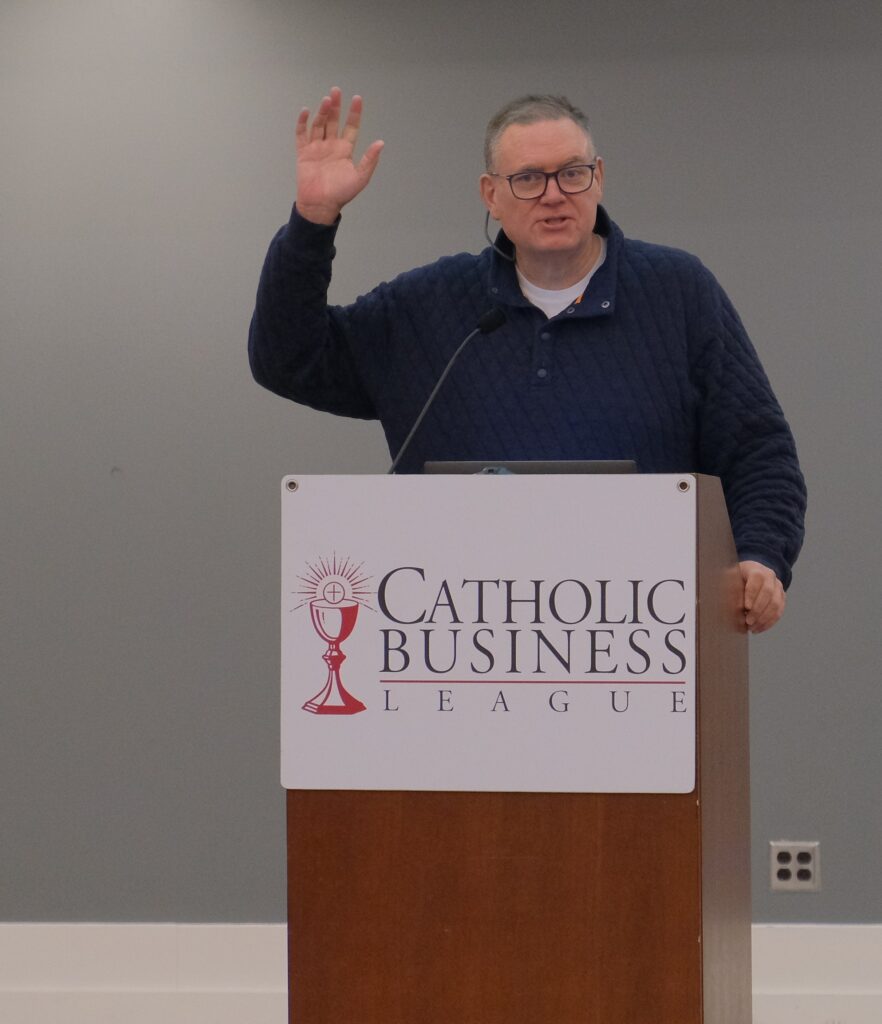
We welcomed an enthusiastic crowd of more than 40 attendees to this morning’s breakfast meeting, as Tim Connors — a venture capitalist and active member in the Diocese of Nashville — discussed the rapid ascent of artificial intelligence and the opportunity to leverage the tool for good in the world.
“AI will change everything, Connors said. “Everything. Will it be for good? Or for evil?”
Before noting how widely artificial intelligence is shaping our day-to-day lives — far more than simply creating a recipe from the ingredients on our shelf or instructing us on how best to diversify our investments — Connors noted the basic issue at the core of artificial intelligence: Will it control us, or will we control it? The former has been a key cause of loneliness and depression, especially with the arrival of social media for children, while the latter is attributable to Jesus’ own teaching, which guided us to love God and others while imitating the nurturing love of Mary.
Connors pointed out several AI-driven tools that are being introduced to the market as a force for good in several facets of our lives, including in transportation, housing, food and health. In transportation, Waymo is a service similar to Uber but with electric, AI-driven cars. This service would help not only the planet but also to replace the cars — used an average of just one hour per day but represent the second-largest expense among vulnerable families — and greatly reduce car payments for those families. He also referenced drones in Rwanda that carry life-saving resources that have reduced maternal mortality by 52% and in-hospital maternal deaths by 88%.
In the housing sector, Cloud Apartments uses artificial intelligence to develop apartment units and buildings in a repeatable and scalable (by size) manner, reducing construction costs by 30% and lessening the rent burden that stems into homelessness, crime and more. And in the food and grocery segment, Connors referenced the point that 42 million Americans suffer from hunger, and while approximately 90% of Americans live within 10 miles of a Walmart, 20% of Walmart’s food products end up unsold, uneaten and landfilled. With the help of AI, he said, this food could be redistributed through a drone program called Zipline, which — in cooperation with Walmart’s top food suppliers — could all but eliminate the hunger crisis.
So again, Connors asked: What can we do? We can leverage AI for good, following Jesus’ counsel to welcome our neighbors with love and nurture them with love, just as Mary does for us.
Our thanks to all attendees, and we look forward to seeing you at our next meeting on March 13!










